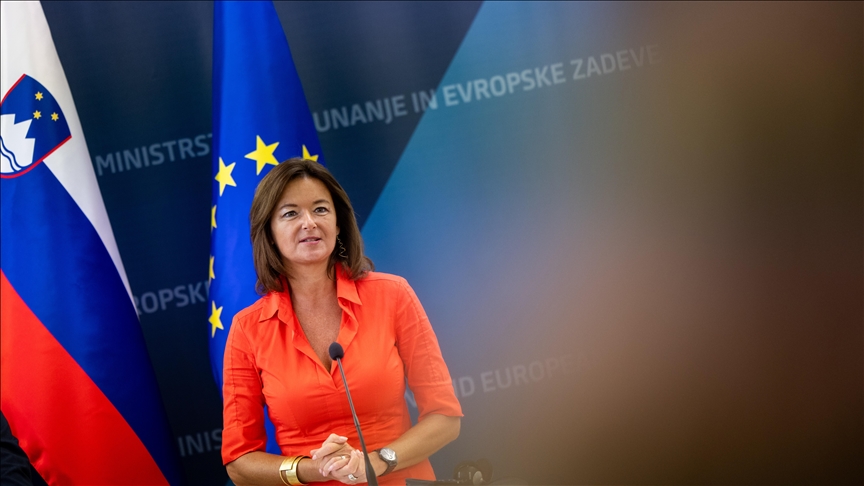Slovenian foreign minister urges UN Security Council to turn dialogue into action, embrace new 'tools'
'Civilians in Gaza continue to endure unprecedented levels of violence and destruction,' Tanja Fajon says
 Slovenian Foreign Minister Tanja Fajon
Slovenian Foreign Minister Tanja Fajon
HAMILTON, Canada
Slovenia's Foreign Minister Tanja Fajon told the UN Security Council (UNSC) on Thursday that if dialogue on the crisis in the Gaza Strip does not translate into action, the group must be prepared to "turn a new page in the tools that it is ready to use."
"We are at the precipice. Almost a year into the war, the devastation and immense suffering of civilians continues relentlessly," Fajon said at a Security Council session on Palestine.
Saying that "civilians in Gaza continue to endure unprecedented levels of violence and destruction," Fajon added that the latest escalation in Lebanon is "another sign" of growing regional instability.
Fajon, as the current Security Council president, demanded an urgent adherence to international law, pointing to violations of humanitarian and human rights law.
She stressed the need for the international community to act decisively to safeguard vulnerable populations, emphasizing that "serious violations of international humanitarian and human rights law persist, challenging the very notion of the international law framework which we collectively established to safeguard all people, and to protect the most vulnerable in particular."
Expressing concern over the disregard for UNSC resolutions and provisional orders from the International Court of Justice (ICJ), Fajon stated that such actions "weaken the credibility of our institutions and erode global trust."
Hailing the UN General Assembly's recent adoption of a resolution that aligns with the ICJ's "advisory opinion," Fajon described it as "a blueprint for peace."
She urged the Council to follow suit, stressing that "negative trends must be met with positive and concrete steps."
Fajon described four steps to resolve the Gaza crisis: Compliance with international law, respect for the UN’s wider membership, courage to uphold a two-state solution and diplomacy aimed at delivering a cease-fire.
"This Council is the most powerful body for peace and security in the world," Fajon said, stressing that "dialogue cannot entail only words."








